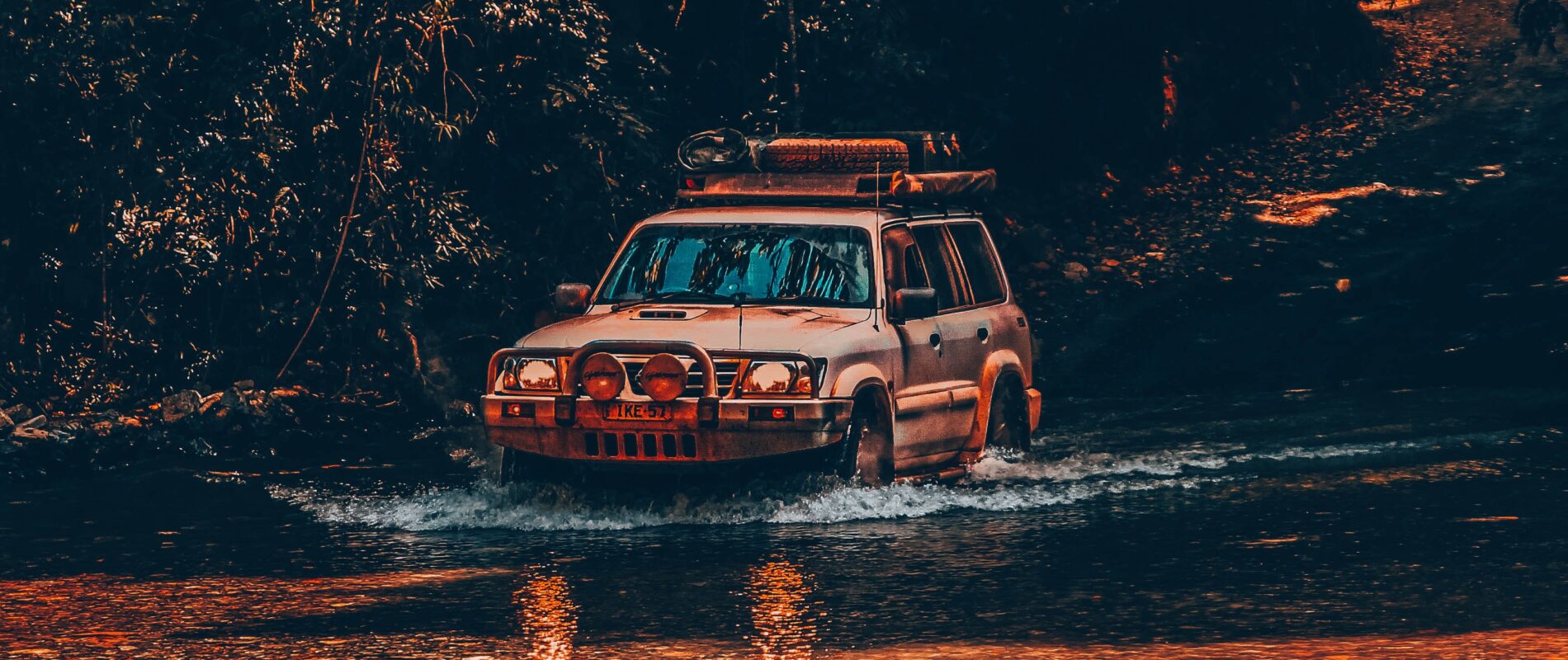What type of vehicle should I buy?
It all depends on your plans and budget.
Common types of vehicle
Sedans
Sedans are a good option if your budget is limited. If you aren’t interested in van-dwelling, or are happy to sleep in a tent if you did want to camp, a sedan will be cheaper than a campervan. A sedan can accommodate two travellers comfortably, but if you are travelling in a group, it might be tight, unless you have a rooftop storage solution.
Tip: To prepare for life on the road, you will probably need to purchase an inflatable mattress, a comfortable blanket, a pillow, and some basic kitchen equipment to cook with.
Station wagons
Station wagons are cars that have an extended boot (trunk) to allow for more comfortable sleeping in the back. They’re an excellent alternative to vans, especially for solo travellers who don’t necessarily need all the bells and whistles of a van.
If you’re travelling with a partner, this option is still possible but you might feel a bit cramped. A station wagon can fit a bed and your other belongings, but we would not recommend station wagons to anyone with claustrophobia.
You could also consider combining tent-living with your station wagon, so that you can switch between the two sleeping arrangements, depending on your mood and circumstances. However, in this scenario, you might prefer to just get a sedan and a tent if you don’t want to use the station wagon bed regularly.
Minivans
Minivans cost less than full vans, plus they are more spacious than sedans and station wagons. It may be more difficult to customise the interior of a minivan than a full van, however, due to the vehicle’s plastic fittings. Regardless, it is a good compromise between price and space.
SUVs and 4x4s
SUVs and 4x4s are designed for those who want to stray from the beaten path. 4x4s are especially useful for travel in remote areas, or if you want to visit national parks accessible only by 4x4s. If you’re sticking to normal roads, such as the East Coast between Brisbane and Sydney, for example, the utility of a 4×4 will be limited.
Those who opt for an SUV or 4×4 often get a rooftop tent included in the vehicle. This is more comfortable than sleeping in your car. An added benefit of a rooftop tent is that you can sleep far above the critters that crawl on the ground. However, the rooftop tent is more complicated to set up and disassemble, so bear that in mind if you are moving around frequently.
Note that an all wheel drive (AWD) is not the same thing as an SUV or 4×4. AWDs are designed for standard road conditions, and have better traction than vehicles with only front wheel drive or rear wheel drive. 4x4s, in contrast, are designed to handle rough terrains.
Also, note that not all 4x4s are SUVs. For example, some 4x4s are station wagons.
Vans
Vans are the vehicle of choice for most working holiday makers in Australia. Everything is included inside the vehicle, from the bed to the cooking equipment. It’s truly a mini house on wheels! You can save money on accommodation with a van, since your mode of transportation doubles as your home. This option can comfortably fit two travellers, or three if one is happy to sleep in a tent outside.
Vans are classed by size. Smaller ones are often still large enough to fit a bed and a basic kitchen. Larger (and more expensive) vans allow for more customisation beyond just the bed. There are also 4×4 vans, though these are going to cost even more.
Remember that vans and 4x4s are less fuel efficient than sedans, station wagons and minivans.
Should I buy a van that is already converted/fitted or not?
Vans that are already fitted have the advantage of being road-trip-ready upon purchase. However, it also means that these vehicles have likely already been used by previous generations of backpackers, so probably have higher mileage. Therefore, the price tag may be more than its true value.
If camping and travel equipment is included, that’s a nice bonus. However, included equipment should not justify an unreasonable price. After all, it doesn’t cost a fortune to customise a van yourself.
Some prefer to customise their van based on their own needs and budget, while others want something that is ready to hit the road. There’s no right or wrong answer here… it depends on your priorities!
Types of fuel
There are several types of fuel in Australia, including basic unleaded gasoline (the cheapest petrol option) and basic diesel. E10 is a type of fuel made up of 90% unleaded gasoline and 10% ethanol. It is more common in certain states than others and you need to be careful, as not all vehicles are compatible with E10.
A few things to know about fuel in Australia:
- Download the app Fuel Map. It is free and shows the real time price of fuel at various stations near you. It is available in the AppStore, on GooglePlay, and in the Microsoft Store.
- Not all stations offer all fuel types (for example on the east coast in Queensland, you will often have a choice between diesel and E10, but not always unleaded gasoline). Factor this in when purchasing a vehicle that runs on a specific fuel type, especially if that fuel type is difficult to get hold of.
- Outside of big cities, diesel is usually the cheapest fuel type. Diesel engines are normally more efficient than gasoline engines. However, diesel cars often cost more than ones that run on basic gasoline.
- To cover long distances, diesel is an economical choice (if you can afford the initial purchase of a diesel vehicle!). Diesel engines have less acceleration but you shouldn’t be expecting to hit peak speeds in a van or bigger vehicle, anyway.
- Fuel is most expensive in remote places and city centres. It is cheaper in suburbs, small and medium sized cities.
- If you are embarking on a cross-country journey, once you reach the remote regions, you should fill up on fuel any chance you get, since gas stations will be sparse.












 Français
Français English
English




0 comments
{{like.username}}
Loading...
Load more